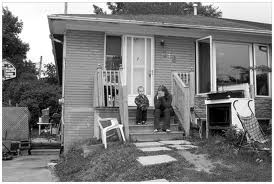Government Grants
Business Grants
Home Owner Programs
Federal Programs
About Us
Early Head Start University Partnerships: Building the Evidence Base for Infant/Toddler Center-based Programs
The Office of Planning, Research and Evaluation (OPRE), within the Department of Health and Human Services' (HHS) Administration for Children and Families (ACF), is soliciting applications for Early Head Start University Partnerships:
Building the Evidence Base for Infant/Toddler Center-based Programs to support projects that will contribute understanding and knowledge of how Early Head Start and other early care and education programs can promote and improve early child development by supporting parents and teachers.
This grant program seeks to stimulate systematic, programmatic, multidisciplinary research to develop and test models of integrated interventions targeted at parents and teachers to promote infant and toddler development across multiple domains including cognitive, language, and social-emotional/behavioral development.
It is expected that research studies and programs stimulated by this initiative will contribute scientific data that inform a number of practice and policy issues.
Projects must be led by researchers working in partnership with one or more Early Head Start programs.
Together, they will identify, implement, and examine integrated promising parenting and teaching intervention models.
Integrated interventions are defined as those that target the child’s parent or primary caregiver in addition to center-based teachers as a means of achieving child development goals.
Applicants are encouraged to consider the applicability of their intervention models to other early care and education settings, particularly within the context of Child Care and Early Head Start-Child Care Partnership programs.
Evaluation activities will include an implementation study as well as a rigorous test of the effectiveness of the intervention in one or more settings.
Results of these studies are expected to provide valuable information that can help guide programs in their decisions regarding interventions to promote and improve early child development.
Grantees are expected to participate in a consortium of grantees, meeting annually and communicating regularly to share lessons learned, identify opportunities for collaborative analyses, and to develop collective expertise and resources to be shared with the field at large.
Building the Evidence Base for Infant/Toddler Center-based Programs to support projects that will contribute understanding and knowledge of how Early Head Start and other early care and education programs can promote and improve early child development by supporting parents and teachers.
This grant program seeks to stimulate systematic, programmatic, multidisciplinary research to develop and test models of integrated interventions targeted at parents and teachers to promote infant and toddler development across multiple domains including cognitive, language, and social-emotional/behavioral development.
It is expected that research studies and programs stimulated by this initiative will contribute scientific data that inform a number of practice and policy issues.
Projects must be led by researchers working in partnership with one or more Early Head Start programs.
Together, they will identify, implement, and examine integrated promising parenting and teaching intervention models.
Integrated interventions are defined as those that target the child’s parent or primary caregiver in addition to center-based teachers as a means of achieving child development goals.
Applicants are encouraged to consider the applicability of their intervention models to other early care and education settings, particularly within the context of Child Care and Early Head Start-Child Care Partnership programs.
Evaluation activities will include an implementation study as well as a rigorous test of the effectiveness of the intervention in one or more settings.
Results of these studies are expected to provide valuable information that can help guide programs in their decisions regarding interventions to promote and improve early child development.
Grantees are expected to participate in a consortium of grantees, meeting annually and communicating regularly to share lessons learned, identify opportunities for collaborative analyses, and to develop collective expertise and resources to be shared with the field at large.
Relevant Nonprofit Program Categories
Obtain Full Opportunity Text:
http://www.acf.hhs.gov/grants/open/foa/view/HHS-2015-ACF-OPRE-YR-1010
Additional Information of Eligibility:
Eligibility is limited to: Organization that are applying on behalf of researchers who hold doctorates or equivalent degrees in their respective fields, conduct research as a primary professional responsibility, and have been first or second author on publications in peer-reviewed research journals; and Organizations that can demonstrate partnerships with one or more Early Head Start programs.
ACF encourages applications from: Tribally Controlled Land Grant Colleges and Universities, Historically Black Colleges and Universities, Hispanic serving institutions, and Faith-based institutions of higher education Faith-based and community organizations that meet the eligibility requirements are eligible to receive awards under this funding opportunity announcement.
Faith-based organizations are encouraged to review the ACF Policy on Grants to Faith-Based Organizations at: http: //www.acf.hhs.gov/acf-policy-on-grants-to-faith-based-organizations.
Applications from individuals (including sole proprietorships) and foreign entities are not eligible and will be disqualified from competitive review and from funding under this announcement.
Full Opportunity Web Address:
Contact:
Agency Email Description:
Agency Email:
app_support@acf.hhs.gov
Date Posted:
2015-05-05
Application Due Date:
2015-07-06
Archive Date:
2015-08-05
Social Entrepreneurship
Spotlight
Childcare Charitable Group Named Top Social Enterprise

Employers For Childcare Charitable Group (EFCG), a Lisburn-based charity, has been crowned top Social Enterprise at the Ulster Final of 2014’s Ulster Bank Business Achievers Awards. EFCG seeks to “make it easier for parents with dependent children to get into work and to stay in work.”

